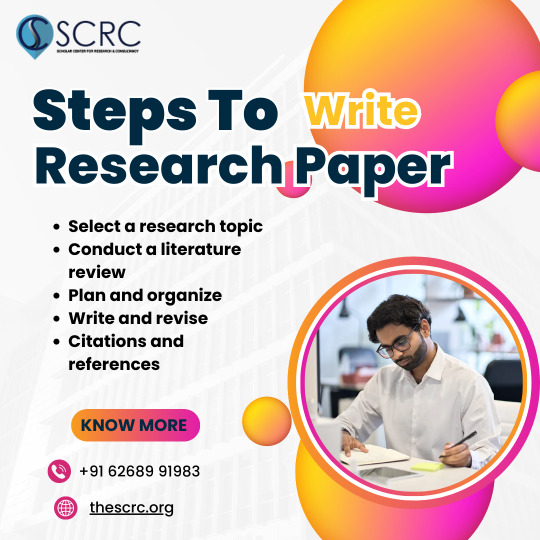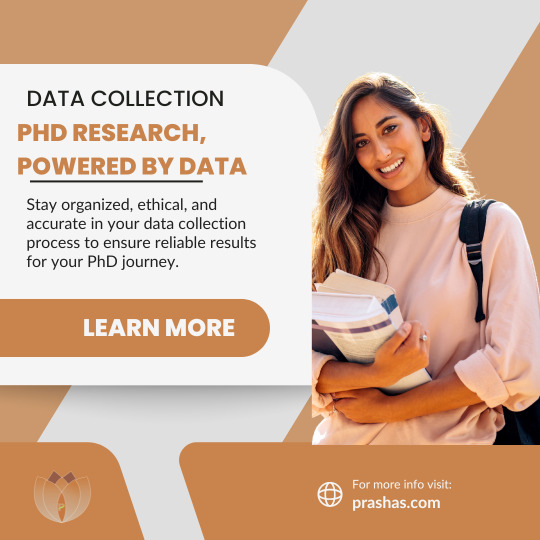#phdstudent
Explore tagged Tumblr posts
Text
instagram
I’m currently in the middle of my thesis journey, and I’ve found a tool that has truly made my life so much easier! 🫠📝☕️📚 I’ve been using Paperguide (formerly ChatwithPDF) to speed up my research process, and I couldn’t keep it to myself, I had to share it with you!
Try now : https://bit.ly/4fmIpvX ✨ Here’s how I use it: 1️⃣ Upload PDFs or paste links to academic papers. 2️⃣ Use AI to summarize, highlight key points (background, methodology, findings), and even assist with referencing and paraphrasing. 3️⃣ Turn these insights into well-organized sections of my thesis or research paper. ⚠️ If you’re feeling stuck in your literature review, give this tool a try. It’s been a game-changer for me, and I hope it helps you too! 🎓
#ThesisWriting#LiteratureReview#AcademicResearch#StudySmart#AIForStudents#PaperGuideAI#PhDLife#ResearchTools#ProductivityTips#workhumor#lifesaver#bart#foryou#fy#fyp#code#coding#techhumor#softwareengineer#hustle#officelady#homeofficeideas#studygram#collegehacks#studyhacks#studywithme#phdlife#phdstudent#phdjourney#Instagram
3 notes
·
View notes
Text
Menujumu : Berjalan di Atas Pasir Basah
ternyata berjalan di atas pasir pantai basah melelahkan aku cukup terseok melangkah di atasnya mengangkat kaki untuk terus melangkah sebakda kaki terperosok dalam pasir terjerembab aku tidak mampu berjalan cepat apalagi berlari bersegera jadi bagaimana masih berkenan menunggu di depan sana? Pacitan, November 2023
Aku merenung saat langkah kakiku berjalan menyusuri tepi pantai selatan, sembari mengangkat juntai gamis hitamku, sedikit berat karena ujungnya telah basah diterpa ombak, pasir pasir putih telah menempel di sisi-sisinya.
lalu aku hening dan berfikir sejenak sembari mengatur nafas karena aku harus melangkah di tengah tengah pasir pantai yang basah, ternyata "melehkan juga" berjalan diatasnya. ini seperti arah menujumu, lirihku.
tapi mungkin aku masih bisa bertahan, meski lelah dan perlahan jalanan yang kulalui sangat indah, pasir putih, biru ombak laut dan langit, juga kesempatan yang tidak semua orang mendapatkannya.
tapi ini bukan tentang berjalan diatas pasir pantai yang basah, doakan semoga usahaku baik darat, dan langit membuahkan hasil, meski memang tidak mudah :)
Sazzadiyatan, 28 November 2023
11 notes
·
View notes
Text

mon petit partenaire.
3 notes
·
View notes
Text

Contact us :
wa.me/916268991983
Website : thescrc.org
Mail : [email protected]
#academicwriting#dissertation#thesis#assignmenthelp#assignment#essaywriting#researchpaper#phdstudent#phd#research#essay#phdlife#phdjourney#phdproblems#assignments#college#writing#students#assignmentwriting#universityassignment#homeworkhelp#university
2 notes
·
View notes
Text

Mastering Data Collection for Your PhD 📚💡
Gathering data for your PhD project? Make sure it’s accurate, reliable, and actionable! Here are some expert tips to ensure your data collection process sets you up for success:
Choose the right data collection method for your study goals. Ensure validity and reliability in your tools. Stay organized and document every step. Maintain ethical standards and consent. Consistently review and validate your data.
#PhDResearch#DataCollection#AcademicSuccess#PhDLife#ResearchTips#GradSchool#DoctoralResearch#ResearchMethodology#PhDJourney#DataAnalysis#PhDStudent#ResearchProcess#AcademicGrowth#ScientificMethod
0 notes
Text

Effortlessly explore and navigate India's top universities with Acadmically. Our platform provides comprehensive information and tailored resources to help you find the perfect fit for your academic and career goals.
Visit Us: https://acadmically.com
Mail Us: [email protected]
Call Us: 098930 51073
#acadmicallyahead#acadmically#universities#ExploreCourses#PhdAdmission2024#PhD#phdstudent#collegestudent#Admissions2024#facebookviral#FacebookPage#facebookpost#i love tumblr
0 notes
Text
Research Paper Writing in Jaipur
We understand the pivotal role that a well-crafted research paper plays in academic success, and our expert team is dedicated to guiding you through every step of the process.
1 note
·
View note
Text
#researchawards#researcher#professer#lecturer#science#ScienceFacts#ResearchAwards#sciencefather#ScienceEducation#WaterBoilingPoint#amophysics#OpticalPhysics#QuantumPhysics#PhysicsResearch#AcademicPioneers#PhDLife#PhDResearch#PhDStudent
1 note
·
View note
Text

Doctoral Researcher Christian Felix Benning made his first presentation at the annual College of Health, Medicine and Life Sciences PGR Conference. He featured some of the data from Study 1 of his PhD, and received several insightful questions from delegates.
Christian was going to bring a drum kit along to provide some live examples from the methodology, but his social conscience, vis-à-vis potentially drowning out every other presenter, prevailed on this occasion! 😁
#music#musica#musique#musik#percussion#drums#drummer#percussionist#rhythm#conference#phd#phdlife#phdstudent#research#poster#sportsscience
0 notes
Text
instagram
Thesis writing doesn’t have to be overwhelming anymore! 🌟 During my thesis journey, SciSpace AI became my go-to tool for making the process easier and faster.
📚 From conducting quick literature reviews to generating structured outlines and polished arguments, it saved me hours of hard work. ✍️ The AI writing feature helped me fine-tune my drafts with ease, and the grammar and formatting tools ensured everything was perfect. 🌍 Multi-language support made my research accessible to a global audience!
If you’re a student or researcher struggling with endless writing tasks, SciSpace AI is the game-changer you need. 🚀
Let me know if you need further adjustments!😎 40% OFF our annual plan with code: womaneng40 🦾 20% OFF our monthly plan with code: womaneng20
Try it with a free trial today, and see how SciSpace can enhance your writing process! @scispace_official
#Al#writingassistant#phdlife#phdstudent#phdjourney#phdcandidate#phdstudentsofinstagram#phdstudentlife#thesiswriting#thesis#thesislife#studytips#studyhacks#collegelife#tez#datascience#ThesisWriting#AIWriter#AcademicSuccess#SciSpaceAI#WritingMadeEasy#ResearchTools#Instagram
2 notes
·
View notes
Text

Admission Open for Ph.D. & Entrance Date on 24 Dec 2023. #PhD #doctorate #HigherEducation #dreamphd #phdstudent #phdcandidate
#Admission Open for Ph.D. & Entrance Date on 24 Dec 2023.#PhD#doctorate#HigherEducation#dreamphd#phdstudent#phdcandidate
0 notes
Link
Tell us a story that this reminds you of!
#graphicdesign#beer#alchemy#homebrewing#alchemist#craftbeer#chemistry#chemist#magic#magical#mystical#phdstudent#research#witchcraft#witch#laboratory#science#potion#chemistrystudent#chemistryteacher
1 note
·
View note
Text

Choosing The Right Research Topic For Your Ph.D. Thesis
#synopsis#writing#thesis#writingservices#synopsiswriting#thesiswriting#phdlife#phdstudent#researchpaper#researchpapers#contentwriting#bestwriting#phdwork#plagiarisminsynopsis#writingsolutions#synopsisediting#services#researchpaperwriting#guidance#synopsissupervisor#writingassistance
2 notes
·
View notes
Text
PhD Progress Recap: Thanks to Prashas Research Consulting! 📊✨
Here’s a quick look at my PhD progress this month! From refining my literature review to finalizing my research design, Prashas Research Consulting has been a huge help in keeping me on track. 🚀📚
If you're also on your research journey, let me know your progress below—and be sure to check out Prashas Research Consulting for expert support! 💡
#PhDProgress#ResearchGoals#PhDJourney#PrashasResearchConsulting#AcademicSuccess#ResearchHelp#PhDLife#StayMotivated#ResearchLife#PhDGoals#PhDStudent#ResearchTips#StudyMotivation#LiteratureReview#ResearchMethods#GradSchoolLife#ResearchSupport#PhDStruggles#PhDCommunity#ResearchConsulting#GradStudentLife#PhDResearchers
0 notes
Text
Ready to take the next step in your academic journey?

Our expert consultants are here to guide you through every stage of planning your Ph.D. at India’s leading universities.
Let's make your dreams a reality.
Visit Us: acadmically.in
Mail Us: [email protected]
Call Us: 098930 51073
#education#admissions#PhD#students#university#guidance#EducationSupport#counselling#phdstudent#PhdAdmission2024
0 notes
Text

We understand the important role feedback plays in refining your coursework. 🎓💡 Whether navigating complex topics or mastering challenging assignments, feedback is your secret weapon for success and great grades.
Here's why it's your academic BFF: 1️⃣ Personalized Pointers: Imagine having tutors who know you like a best friend, offering advice on where to tweak and cheering you on for your victories. 🌐📊 2️⃣ Learning Journey Buddy: It's not just about acing a test; it's about growing every step of the way. Let feedback be your companion in this journey of constant improvement. 📈✨ 3️⃣ Customized Care: Our expert team is here to ensure your academic outfit is tailor-made for success. They'll give you the right stitches to meet those high standards. 🎯🏆
Ready to paint your academic canvas with success? 🌈 Let us be the encouraging brush strokes on your path to excellence! 🎓💼📚
#feedback#guidance#academicsuccess#feedbackmatters#research#coursework#academicwriting#thesiswriting#academiclife#essaywriting#writingtips#reportwriting#essaywritingservice#assignmentwriting#graduateschool#researchpapers#students#phdstudent#ukstudents#ukstudentslife#thescholarly#scholarly#uk
0 notes